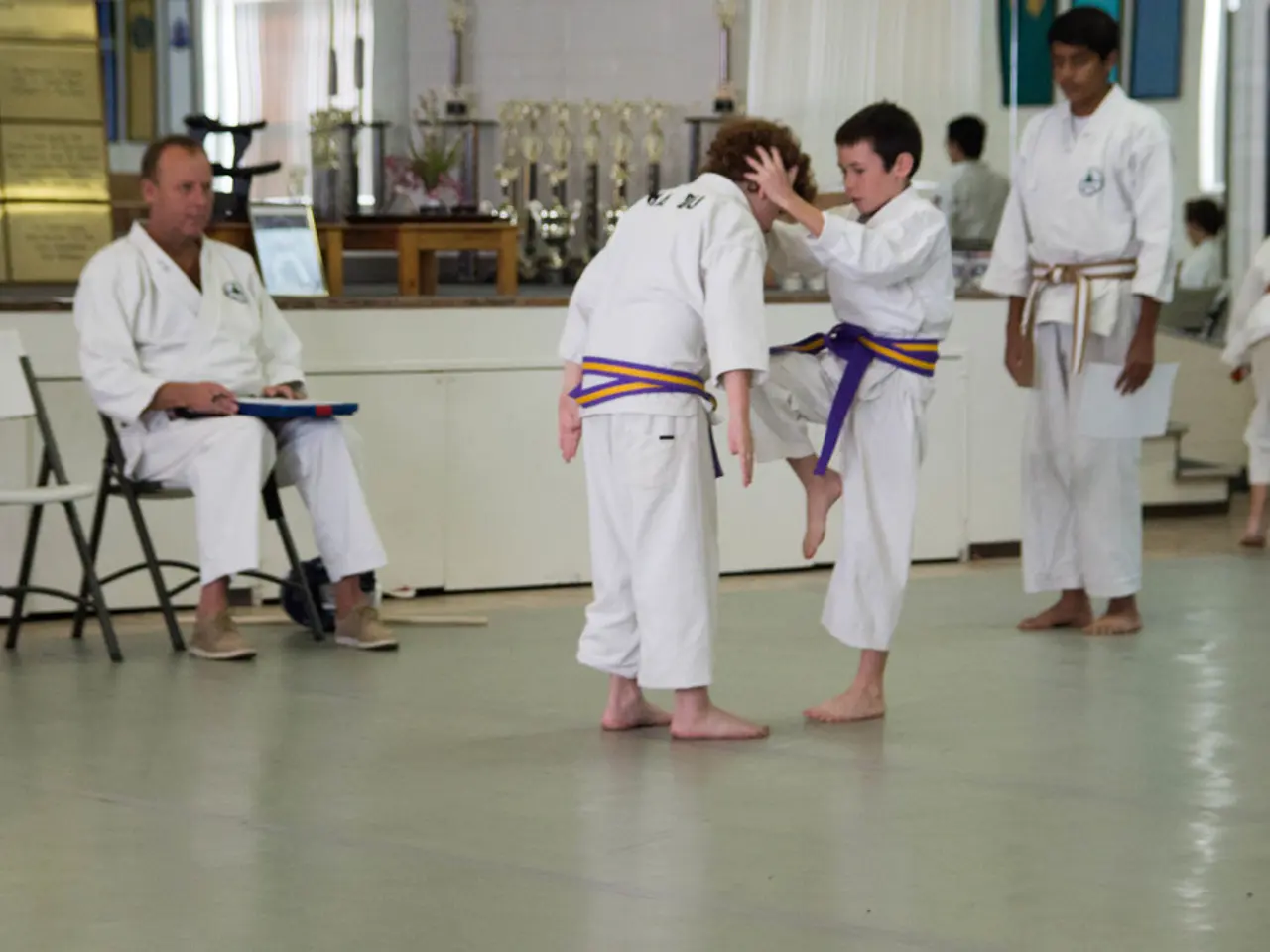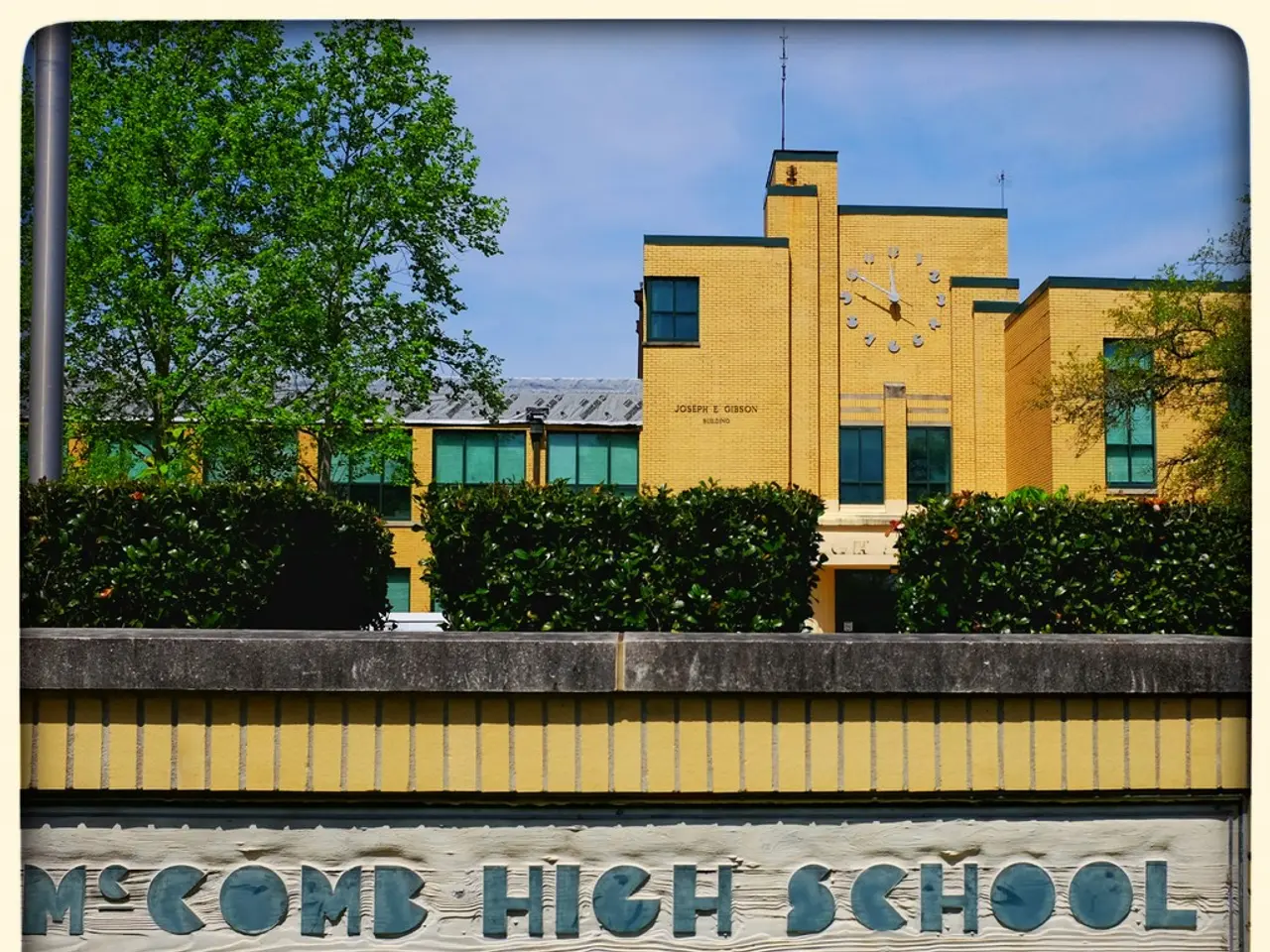Classroom instruction fostering real-life skills to prepare students for their future lives
Transforming Education with Real World Learning
In a world that's constantly evolving, the need for an educational approach that prepares students for the realities of life, society, and work is more important than ever. This is where Real World Learning (RWL) comes into play.
RWL is an innovative approach that connects the curriculum to situations students may encounter in their lives. It does this by strategically linking subjects to current events, introducing role play and simulation, and fostering community collaboration.
At the heart of RWL is the presentation of challenging problems or questions that require in-depth inquiry and problem-solving. This approach encourages engagement and deep exploration of subject matter. Students are then encouraged to conduct sustained inquiry, gathering information, testing hypotheses, and refining their understanding over a period.
One of the key aspects of RWL is student voice and choice. This allows students to have a say in the direction of their learning, making choices that align with their interests and strengths. This promotes autonomy and motivation.
Regular reflection and feedback are also crucial for students to assess their progress, identify areas for improvement, and adjust their strategies accordingly.
The authenticity of learning is another essential component of RWL. Learning is embedded in real-world contexts, making it more meaningful and relevant to students' lives. This authenticity enhances engagement and understanding.
Implementing RWL offers several key benefits. It enhances critical thinking and problem-solving skills by applying theoretical knowledge to real-world scenarios. By engaging with authentic problems, students gain a deeper understanding of subject matter and retain knowledge more effectively than through traditional teaching methods.
RWL also promotes the development of essential skills such as collaboration, communication, and time management, which are vital for both personal and professional success. It increases student confidence and independence as they explore their interests, make decisions, and develop valuable skills.
Moreover, RWL facilitates the transfer of learning by applying knowledge in diverse contexts, enhancing students' ability to adapt knowledge to new situations.
At our school, we weave inquiry, technology, and real-life application into every level of learning, from the Primary Years Programme to the Diploma Programme. We offer various opportunities that extend learning beyond the classroom, such as field experiences, industry visits, guest speakers, museum visits, and nature walks.
Our students explore how their subjects relate to current events, participate in simulations like Model United Nations, and collaborate with nonprofits and businesses. All these experiences transform the classroom into an environment of discovery.
For parents seeking an environment where education means more than a scorecard, they find that vision brought to life at our school. We prepare children to thrive in a complex and changing world, equipping them with the skills and knowledge they need to navigate their futures with confidence and curiosity.
- In the ever-changing world, the Real World Learning (RWL) approach is significant as it prepares students for life, society, and work by connecting curriculum to real-life situations.
- RWL emphasizes student voice and choice, enabling students to have a say in the direction of their learning, fostering autonomy and motivation.
- Learning is enhanced in RWL by regular reflection and feedback, allowing students to assess their progress, identify areas for improvement, and adjust their strategies.
- Implementing RWL offers benefits such as enhancing critical thinking and problem-solving skills, promoting the development of essential skills like collaboration and communication, and increasing student confidence and independence.
- RWL transcends traditional teaching methods by facilitating the transfer of learning, enabling students to apply knowledge in diverse contexts and adapt to new situations.
- Our school integrates inquiry, technology, and real-life application into every level of education, offering opportunities for students to explore subjects in relation to current events, participate in service learning experiences, and collaborate with community organizations.




